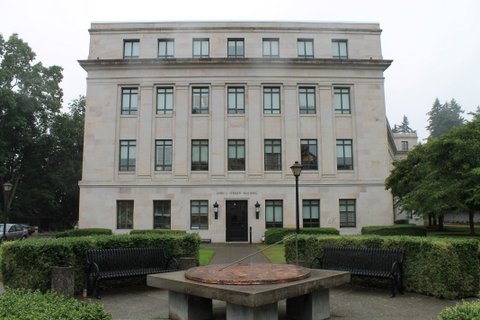
We have now completed week three of a 60-day legislative session and are fast approaching the first cutoff on February 2. Bills that are to continue through the process must be passed out of committee and read on the House or Senate floor by the end of the day on Friday. With over a thousand bills introduced since the start of session, many will not make it past the first cutoff. Those that do will move on to floor action and then additional committee hearings in the opposite chamber. After February 2 we will have a much clearer look at AIA Washington Council’s work ahead for the remainder of the session.
In keeping with the lengthy political agendas from stakeholders and legislators alike, last week brought hearings on a wide range of policy issues. Legislative committees heard testimony on everything from eliminating the death penalty and removing the state ban on rent control to preparing for nuclear war.
The chambers also had floor votes on a number of notable bills. In the Senate, legislators passed a bill aimed at increasing immigrant students’ access to financial aid for college and banning bump stock gun modification. These bills will now move to committees in the opposite chamber.
AIA Washington Council Priorities
HB 1622 to increase funding for the State Building Code Council passed out of the House Appropriations Committee and is now in the House Rules Committee, which will determine whether and when the bill is sent to the House floor.
Walter Schacht, FAIA, testified for AIA Washington Council at hearings on two bills: HB 2726, to allow private public partnerships (P3) for alternative public works contracting, and HB 1325 on the scoring and prioritization of capital budget projects at Washington’s community colleges and universities. The P3 bill is very complex and will likely take more than one legislative session to sort through. In addition, Speaker Frank Chopp (D-Seattle) does not support P3s. AIA Washington Council has expressed concerns with the bill and supports waiting on this legislation to allow additional time for the state to study the issue. On HB 1325, Walter testified on the need for architects’ involvement in developing reasonableness of cost standards for higher education projects.
One of AIA Washington Council’s affordable housing priorities, securing funding for the state’s Housing Trust Fund, was accomplished last week with the passage of the capital budget. The state’s Housing Trust Fund is an important source of capital used to develop and preserve affordable housing for low-income and vulnerable Washingtonians. Managed by the State Department of Commerce, the Fund makes dollars available for affordable housing projects through a competitive application process.
As reported last week, several bills aimed at reforming condo legal liability statutes have been introduced. Two of those, related to construction defect claims, will be heard in committee this week.
Legislation that would reduce Sound Transit-related car tab fees for residents of Pierce, Snohomish, and King counties was passed off the House floor and sent to the Senate. The bill would change how Sound Transit calculates a car’s value for taxing purposes. Lawmakers continue to work out how to alleviate the financial blow the bill would deal to Sound Transit. AIA Washington Council has opposed efforts to reduce funding for Sound Transit in the past, but the need to lower the fees seems to have broad bipartisan support.

